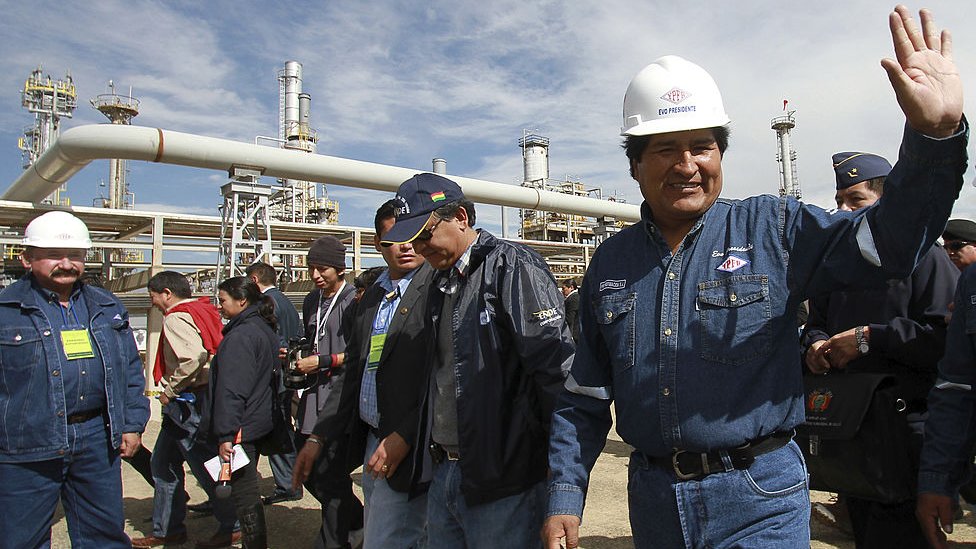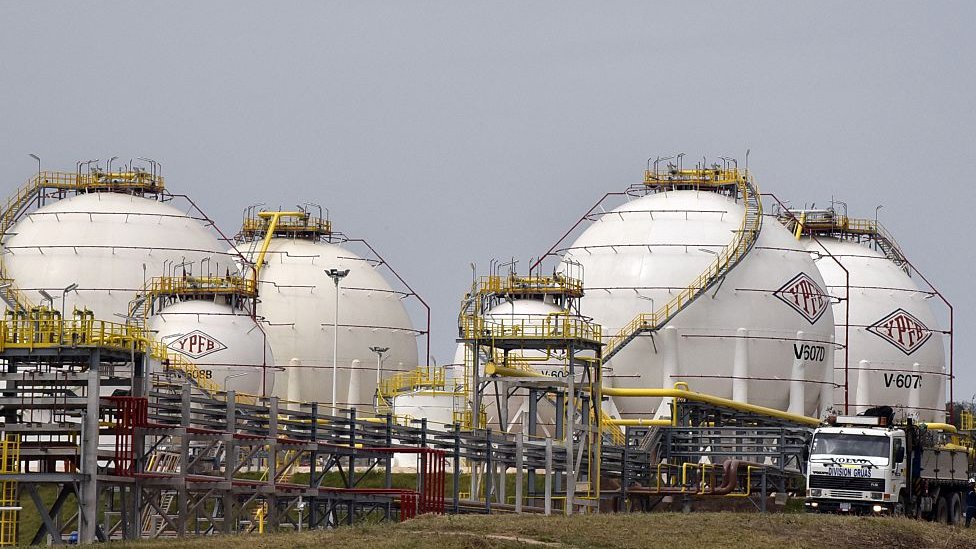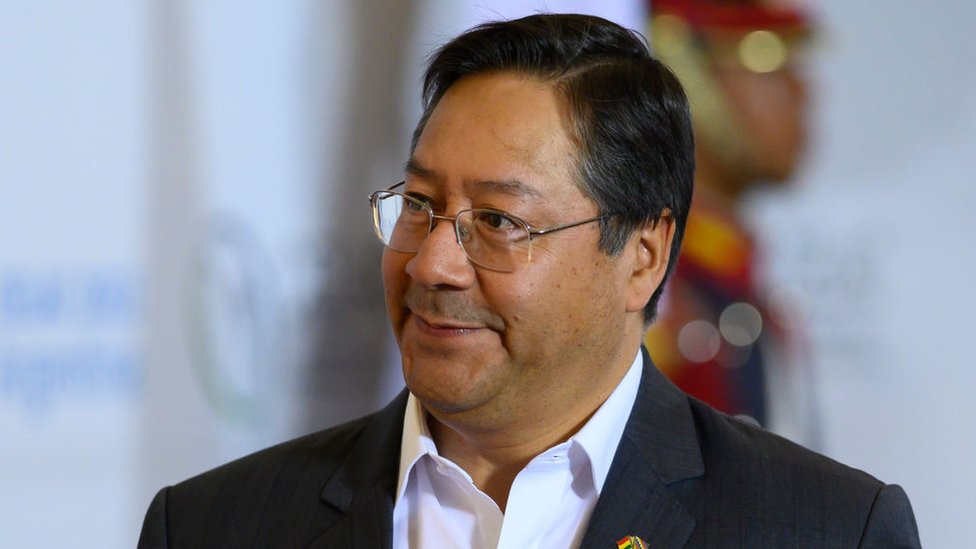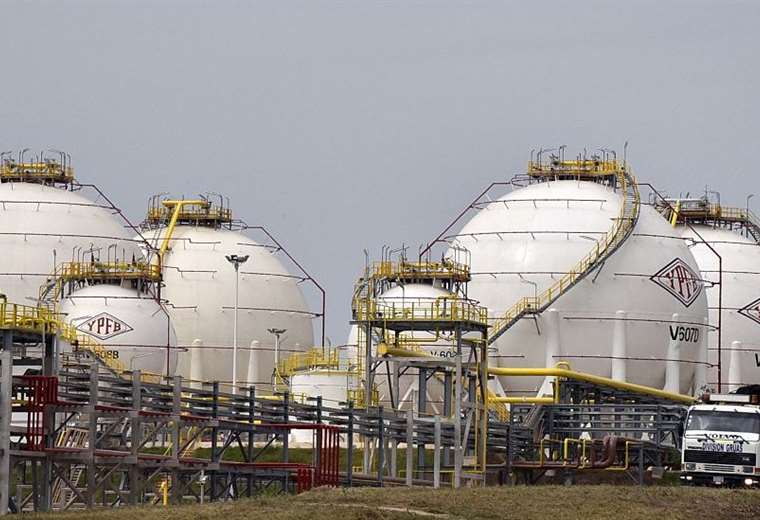March 16, 2023, 11:39 AM
March 16, 2023, 11:39 AM
Something important has changed in the Bolivian economy.
After years in which revenues from gas exports cemented sustained growth and poverty reduction during the presidency of Evo Morales (2006-2019), the country began to import more fuel than it exports.
According to data from the National Institute of Statistics, Bolivia became a net importer of energy in April 2022, when it began to acquire more fuel from abroad than it sold to other countries, breaking the trend that marked the Morales era, which He nationalized the country’s natural resources to finance his social programs with their sale.
But many economists see the new situation and the energy trade deficit in which Bolivia now lives as a turning point for the country’s economy.
They maintain that one of the essential pillars on which the model that allowed the economic policy initiated by Evo Morales was based is now in question.
Armin Dorgathen, president of the state energy company, YPFB, attributed what happened to the impact of the war in Ukraine. “Obviously, fuel imports went up because of the price and because of the war,” he said.
He also pointed out that the situation could be reversed with new exploration projects underway and with the importation of crude oil to refine it in Bolivia, which will allow spending less on the purchase of gasoline and diesel. Although the analysts consulted are skeptical.
What’s going on
Bolivia has been living for some months importing more gasoline and diesel than the gas it exports, which has installed it in a energy trade deficit estimated by the consulting firm Gas Energy Latin America at US$1.1 billion as of November of last year. The figure contrasts with the surplus of between US$2,000 and US$4,000 million ten years ago.
According to data from the National Institute of Statistics, Bolivia imported fuels and lubricants worth US$4,066 million in 2022, while its exports in this same category remained at US$3,088 million.
The data reflect the increase in fuel prices caused by the war in Ukraine, but also the decline in gas production in recent years, which fell to 15.4 million cubic meters per day after having exceeded 22 million in 2015.

Álvaro Ríos, Bolivia’s former Minister of Hydrocarbons, told BBC Mundo that “the gas business requires investment in exploration to have alternative fields available when those already in exploitation run out, and almost no investment has been made in Bolivia in exploitation, so the fields have been depleting”.
The economist Jaime Dunn recalls that YPFB’s exploration projects “have been on the table for a long time and often remain on paper”
Economy Minister Marcelo Montenegro revealed last January that former President Morales was too optimistic about the availability of gas in the country and allowed himself to be deceived by some of his senior officials.
“They told him ‘you are in a sea of gas’ and it was a lie, and today, obviously, we are paying the piper for not having explored in those years,” said Montenegro, a minister in the government of the current president, Luis Arce, with whom Morales maintains a growing rivalry for the leadership of official socialism.
Exploring and finding new gas fields requires time and large investments, and Bolivia has not been an attractive destination for international energy companies in recent years.
Lian Lin, an analyst for Bolivia at The Economist Intelligence Unit, told BBC Mundo that “it is not easy to attract private investors to Bolivia, because there is a lot of bureaucracy and because of fears of another nationalization like the one in 2006.”

Ríos points out that in Bolivia the taxes for foreign companies that intend to exploit natural resources are “confiscatory”, which discourages investment, and they were imposed thinking only of obtaining the maximum immediate benefit, but not of maintaining future production.
What consequences does it have?
The drop in gas production means that Bolivia is benefiting much less than it should from the international context of high prices for energy raw materials caused by the war in Ukraine.
Lian Lin explains that “the natural gas boom made it possible to reduce poverty during the years of Evo Morales, but Bolivia has not reformed its policies and now they seem unsustainable.”
With fewer exports, less currency enters the country and the international reserves it has have been significantly reduced, to the point that the Central Bank announced last week that it would sell dollars directly to individuals amid complaints that the currency it began to be scarce in bank branches and exchange houses.
Bolivian gas also sees its main markets in danger. Brazil and Argentina, the largest customers, have intensified their search for alternatives and their domestic production, with initiatives such as the large-scale exploitation of the large Vaca Muerta oil and gas deposits in Argentine Patagonia.
Bolivia also maintains generous fuel aid and other state subsidies, and the sustained decline in export earnings has eroded the balance of its public accounts.

Juan Antonio Morales, former president of the Central Bank of Bolivia, told BBC Mundo that: “The big underlying problem is the fiscal deficit”since the State has seen its income fall, but has not reduced its expenses, which explains why it has consumed a large part of its international reserves.
International reserves, which in 2014 were around US$15.5 billion, are now at a record low of around US$3.5 billion.
Juan Antonio Morales only sees a way out for Bolivia and warns that it can be painful: “The solution lies in a capital fiscal correction.”
But the government insists on the sustainability of the current model and on the strength shown by the Bolivian economy in recent years.
The next few months will tell who is correct in their diagnosis.
Remember that you can receive notifications from BBC Mundo. Download the new version of our app and activate them so you don’t miss out on our best content.


















